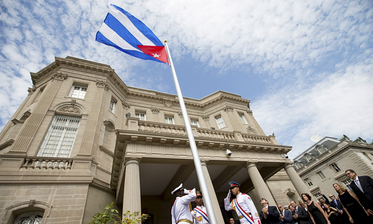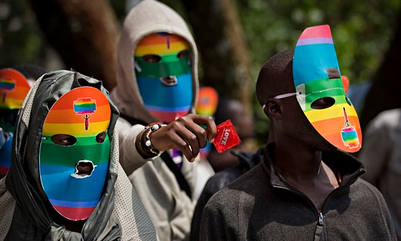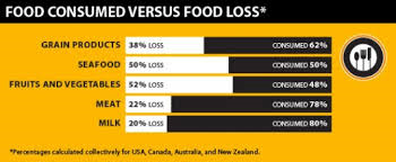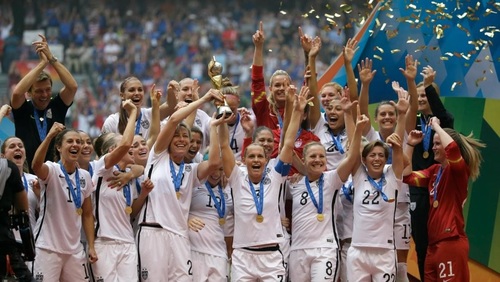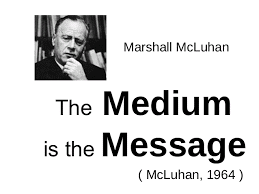 Crispr in action Crispr in action The complete system of DNA repeats, Cas proteins, and RNA molecultes is called the Crispr/Cas system. Chinese researchers at University in Guangdong, China released a study about the use Crispr/Cas9 in human embryos in “Protein & Cell” April 2015. These building successes, however, leave experts concerned about Crispr/Cas9 in human germ cells that include eggs, sperm and embryos because of the many unknowns. Forecasting beyond the obvious beneficial uses, the ethical concerns involving altering the genetic material of future generations without consent persists. “Genome editing started with just a few big labs putting in lots of effort, trying something 1,000 times for one or two successes,” says Hank Greely, a bioethicist at Stanford. “Now it’s something that someone with a BS and a couple thousand dollars’ worth of equipment can do. What was impractical is now almost everyday. That’s a big deal.” Most scientists agree engineering humans in the womb is long way off—if ever. In a rapidly changing world where technology and science are evolving faster than the cultural space they occupy, absorbing and processing for long term consequences should be addressed with the same vigor as a new discovery.
0 Comments
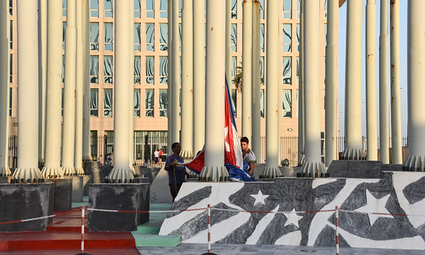 US Embassy in Havana raises Cuban flag US Embassy in Havana raises Cuban flag The official opening, however, will take place on August 14 when Secretary of State John Kerry travels to the Caribbean Island to participate in a ceremony raising the American flag. There are no plans to appoint an ambassador to Cuba because of the expected condemnation by some US Senators. Jeffrey DeLaurentis, chief of the mission, will serve as an upgraded charge d’affaires. Normalizing diplomatic relations between the US and Cuba brings to a close 50 years of cold war induced animosity. There are still some barriers between the countries. Travel is easier, but is subject to some restrictions. The fate of lifting the embargo is left to the US Congress to decide; however, business interests are encouraging an end, which could hold sway in the Republican dominated House of Representatives. US Sen. Marco Rubio (R-Fla), son of Cuban émigrés, has been one of President Barack Obama’s critics in the normalizing of relations with Cuba. The Florida senator, who is one of over fifteen Republicans vying for nomination to run for president, inferred that if elected president he would reverse the decision opening the embassy, which would plunge the US and Cuba backwards into an archaic era with little relevance in the 21st century. As the embassies open, the Cuban flag will join other nations in the US State Department lobby. State Department spokesperson John Kirby said hanging the flag marks the re-opening of the Cuban embassy in Washington. The lobby features the flags of more than 150 other countries placed in alphabetical order, reported by the Sun Herald. Resources Guardian 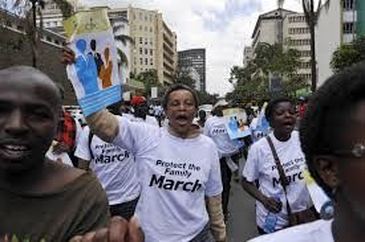 Kenyan Republican Liberty Party demonstrators Kenyan Republican Liberty Party demonstrators The airport has already been secured by US security agents in anticipation of the president’s arrival next week. Mr. Eric Kiraithe, the head of security at the Kenya Airports Authority, said they are working with US agents to ensure smooth operations during the visit. The Nairobi Times followed how what started as a demand from a student leader at a Kenyan University for President Obama to visit their institution degraded into a demonstration by a homophobic extremist group. The students began by making outrageous declarations that if the president did not visit 18 students would commit suicide and others would demonstrate in a disrespectful way. This led to the Republican Liberty Party in Kenya to mobilize 5,000 men and women to protest unclothed against President Obama’s “aggressive support of homosexuality.” The group sent a letter to the Administration Police Commandant warning of their intentions to demonstrate on July 22 and 23 in the public streets. Africa has a history of being anti-gay and is being called a “continent at war with itself.” Homophobia in African nations Nigerian president Goodluck Jonathan signed into law a bill criminalising same-sex "amorous relationships" and membership of LGBT rights groups. Gambian president Yahya Jammeh declared: "We will fight these vermins called homosexuals or gays the same way we are fighting malaria-causing mosquitoes, if not more aggressively." In Uganda homosexuality is already a crime, and new laws broadened the scope to life in prison for offenses. In 2014 the Associated Press reported a meeting when American rights activists spoke with Archbishop Desmond Tutu. He compared the punitive legislation and racist laws to South Africa’s apartheid. Another problem is the media contribute to spreading dissention against gay populations. Politicians and the news media are not alone fanning the flames of homophobic discontent, as there are large segments of Africans who upon meeting will be warm and welcoming—until the question of homosexuality is raised. Discussions quickly turn into outbursts of homophobic prejudice and rage. One of the explanations for the dominance of anti-gay sentiment is religion. In 1910 only 9 percent of sub-Saharan Africa was Christian. In 2010 the number of those declaring to be Christian had increased to 65 percent, according to Pew Research. A human rights and gay rights campaigner Peter Tatchell said, “Prior to western colonization, there are no records of any African laws against homosexuality. The real import into Africa was not homosexuality but homophobia.” Some believe colonialization is at the root cause. 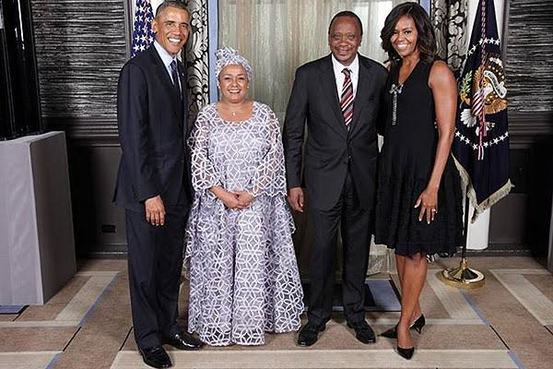 President Obama and wife Michelle with Kenyan President and his wife Margaret. President Obama and wife Michelle with Kenyan President and his wife Margaret. Furthermore, an argument in defense of so-called “tradition” trades on cultural relativism and exploitation of postcolonial guilt. Human rights groups insist individuals have the right to not be tortured and a minority right should be protected from violations perpetrated by a majority which is grounded in philosophical thought. The 19th century British political philosopher John Stuart Mill in “On Liberty” wrote, “The only purpose for which power can be rightfully be exercised over any member of a civilized community against his will is to prevent harm to others, hence, the birth of the “no harm principle.” The purpose is to prevent government from becoming a vehicle for the “tyranny of the majority,” that he viewed as not just. Also, as a prevention against social tyranny that stifles minority voices and imposed a regimentation of thought and values. Mill is the basis of liberal political philosophy for free markets, economic liberalism, and social liberalism. The application to gay rights is obvious. Also US evangelicals have been accused of turning to Africa as conservative anti-gay attitudes are losing credibility in the US. Whereas, in Africa the progressives are under pressure and the conservatives are on the rise. Human Rights Watch reports a paradox, however, in a wave of opposition: “Harsh laws enacted may be a measure not of failure but of success, a reaction gay and lesbians asserting their political identity and rights [in Africa] as never before.” Whether President Obama will respond in Kenya to the demonstrations against his stand on homosexuality, we will have wait and see. Clearly Kenya has many issues, but international human rights deserve to be near the top of the list. Resources Pew Research Global Post http://www.nation.co.ke/news/Barack-Obama-Visit-Security-Nairobi/-/1056/2793120/-/xgg56m/-/index.html http://www.thenairobitimes.com/2015/07/14/over-5000-naked-women-to-protest-in-nairobi-ahead-of-us-president-obama-visit-read-why/ http://www.theguardian.com/world/2014/feb/23/africa-homophobia-uganda-anti-gay-law http://www.democracyweb.org/node/36 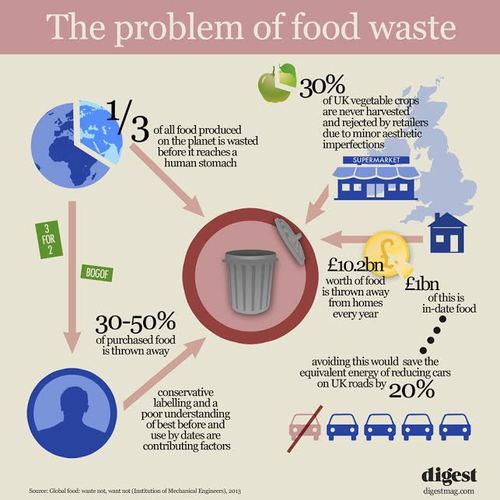 Raley’s grocery chain in California and Nevada is taking a leap of faith and creating a section devoted to produce seconds that otherwise would overload a landfill or wasted in some other way. “Imperfect” an outlet for produce rejects has just brokered a deal with high-end chain Raley's, which has more than 100 stores in California and Nevada. The chain says it will launch a pilot program, "Real Good" produce, in 10 Northern California stores in mid-July. Why is so much good food being thrown away? One example of why some produce does not reach the table is described by representative of Ocean Mist Farms in Salinas Valley, California. Cauliflower in the store is usually white—it’s what we are used to seeing. But as it turns out white is not the color of the average cauliflower. Art Barrientos pointed out that many have a yellow tinge. “This is not marketable,” he said in a report by NPR. The yellow tint comes from sun exposure, but is just as good and nutritious as white cauliflower. The market demands white, blemish-free, perfectly sized heads of cauliflower. The rejects are plowed under, he says. The story is the same at HMC Farms in Kingsbury, California where broccoli and peaches are grown, and 35 percent of the crops never make it to the grocery store. Instead, it’s used as cattle feed. Food waste is among the biggest contributors to landfills in the US which creates another problem: "When [food] rots, it emits methane, which is a very potent greenhouse gas." Food waste is responsible for a significant portion of methane emissions, according to the NRDC. Some farming operations are sending rejected produce to food banks, but one of the problems for farmers is a low cost delivery supply line mechanism that encourages them to donate to food banks. It’s difficult to recruit farmers to join those donating, for only three out of 25 growers of broccoli and cauliflower in California participate in distributing to food banks, but there are other possibilities that could increase the incentive for some farmers concerned with profitability of produce. It’s easier and cheaper for them to throw away the rejects. To encourage more farmers to participate there needs to be an economic incentive, according to HMC Farms representative.  California offers tax breaks for donating to food banks and is one of only six states currently offering tax breaks for donating rejects. While food banks are a thriving alternative for excess produce, there are enough rejects to supply alternative economic distribution concepts including Raley’s “Real Good” produce section launching in July. In fact if the Raley’s model is successful, it could be the genesis for a new farming business model focusing on improving supply line collaborations and connections from farm to distribution mechanisms increasing profits. Food banks, however, will continue to be the life line for the poor and disadvantaged. Paul Ash, executive director of the California Farm to Family food bank program, said they have distributed over 70 million pounds of produce this year and expect to grow in the future, and expand the program to other states. Related at NEWTEKWORLDNEWS: Billions worth of food thrown away annually Resources http://www.nrdc.org/food/files/wasted-food-ip.pdf http://www.npr.org/sections/thesalt/2015/06/17/414986650/to-tackle-food-waste-big-grocery-chain-will-sell-produce-rejects
 Still, the Women’s World Cup final game soared to the top as the most watched soccer game in US history for men or women. After the cheers have subsided and the after-glow of celebrations are relegated to sport’s history, the success of the women’s team will affect forever how equality in women’s sports is debated and ultimately achieved. The women’s soccer team advocated for parity before taking a rightful place among American team champions. In 2014 in advance of the championship games to be played in Canada, US women’s players led by Abby Wambach and Alex Morgan filed a law suit against FIFA and the Canadian Soccer Association when it was learned that the women’s world cup would be played on artificial turf. The women contended artificial surfaces exacerbate injuries and change the game. Legal representative for the US women and Canadian groups Rocky Collins put the case before the Human Rights Tribunal in Ontario, Canada, according to a report in the Los Angeles Times. "When the men say they want grass, they get it. And for the women, there just isn't a concern on behalf of FIFA or Canadian soccer for what the women want or deserve," Collis said. Last May in an astonishingly punitive decision, the women’s national team forward Abby Wambach said soccer’s international governing body rejected a free offer to put grass fields down for the upcoming Women’s World Cup in Canada, reported by the Washington Times. Wambach has been a vocal critic of using artificial turf for the World Cup, claiming it amounts to gender discrimination because her male counterparts would never be asked to play soccer’s premier tournament on artificial grass, they said. The initial law suit was dropped when it became clear FIFA would not change the field surface even if they lost. FIFA did agree to play the 2019 women’s World Cup on grass. Turf selection is not the only area where women are treated unfairly by FIFA. Pay equity is a contentious issue with professional women’s sports teams, and this year’s disparity between men and women in soccer serves as a stark reminder there is a lot of work to be done to achieve comparable worth. For their championship win the US team will receive $2 million from FIFA. Think Progress reports “the championship prize for women pales in comparison to the $8 million in prize money awarded to men’s teams who lost in the first round. Every men’s team was awarded $1.5 million just for participating.” 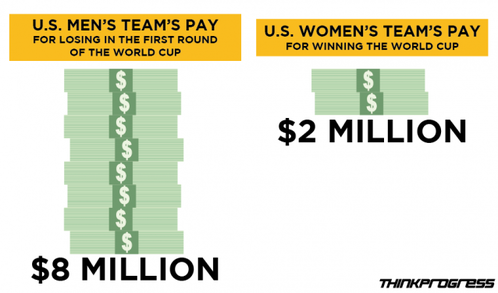 Wage and opportunity gender gap in colleges and professional sports Both amateur and professional sports have been affected by the wage gap. Women’s team sports in colleges and universities, as well as the coaches, receive smaller budgets than their male counterparts. Coaches for women’s teams earn 63 cents for every dollar earned by coaches for men’s teams. As evidenced by the prize money disparity between men and women in professional soccer in World Cup competition, women are lagging behind men in prize money, sponsorship commitments and endorsements. Pay discrepancy is explained from the perspective of world corporate sponsorship. In the past women’s sports has not drawn the name recognition of men’s sports; therefore, companies are less willing to pay large amounts to advertise with female athletes. The Women’s World Cup brought in $17 million in sponsors this year, compared to $529 million in sponsors for last year’s men’s World Cup, according to the Wall Street Journal. As fans and spectators, we forget professional sport is a business first and foremost. Investors and owners are just as interested in profits and as your local investment banker, which became painfully evident with the recent FIFA scandal involving alleged corruption, money laundering, bribery and racketeering. Despite the business aspect, there is an expectation of ethical practices not only among professional athletes but also by many owners and organizations. Ethics is an important part of sports, and professional athletes are held to a high standard of behavior on and off the field. They are seen as role models for young people. Scandals by players or team organizations have a tarnishing effect on the image of the sport which discourages sponsorship. If individual women and women’s team sports are treated unfairly in pay and opportunity, the message to young girls is expect less because you are not as worthy as men. This is not representative of American progressive ideals, and the tremendous response to the Women’s World Cup this year advances the concept that the roles of women are equal in professional sports. If name recognition is key to garnering corporate sponsorship, then women’s soccer has taken a giant leap for womankind. Resources http://www.people.com/article/us-womens-soccer-team-ticker-tape-parade-nyc http://www.latimes.com/sports/soccer/la-sp-soccer-baxter-20141026-story.html http://thinkprogress.org/sports/2015/07/06/3677105/fifa-will-pay-us-womens-championship-team-4-times-less-mens-teams-lost-first-round/ http://www.washingtontimes.com/news/2015/may/9/wambach-fifa-turned-down-grass-offer-for-womens-wo/#ixzz3fnLIn2pa http://www.ibtimes.com/fifa-soccer-corruption-scandal-swiss-prosecutors-say-they-have-more-evidence-money-2004682
If President Obama’s victory was the harbinger of change, shifts toward a new message representing the American people are being continued by Democrats with Sen. Bernie Sanders leading the charge leaving the Republican Party fractured and grappling to retain an archaic social and political platform rejected by many Americans.
The “medium is the message” Marshall McLuhan wrote in “Understanding Media” that the “medium” is defined in a broad sense. A newspaper, television, radio etc. have a social effect by creating a space for debate illuminating darkness; moreover, a medium without challenging content and space is stagnant, but “a light bulb creates an environment by its mere presence.” This premise can also be applied to political parties as Democrats create “space” for change and debate challenging the stagnation of conservatism for everything thing from discounting trickle-down economics, enlightened views on immigration, and embracing marriage equality. Changes that occur over time tend to be discounted like the incremental political pulse of the nation rising out of the ashes of Reaganomics to become increasingly liberal and progressive, which some at their peril ignore as insignificant or episodic. Forward thinking individuals know change in society and culture represents a new message is being spread on the ground—sometimes hidden in plain sight. Sen. Bernie Sanders--among other liberals--is the embodiment of an authentic, populist message reflecting an emerging cultural pivot to tolerance, compassion for the least advantaged, and genuine concern for the working classes. McLuhan said, “Control over change would seem to consist in moving not with it but ahead of it. Anticipation gives the power to deflect and control force.” “Moving ahead of change” is the guiding political principle for the future. Reactionary conservatism exemplified by the tea party will eventually fade away as archaic and not a viable political or social construct responsive to the ideals for the majority of Americans. If the Republican Party continues to rely on a conservative message, Americans will stop listening. Additional Resources National Journal US History http://www.people-press.org/files/legacy-pdf/06-21-12%20Voter%20Attitudes.pdf http://individual.utoronto.ca/markfederman/article_mediumisthemessage.htm
 With the rise of Sen. Bernie Sanders (I-Vt) choosing to run as a Democrat instead of an Independent--so far, the question on whether he will choose to run on a third party ticket if he loses the Democratic Party nomination is worth considering. On the other hand, how viable are third-party candidates? In the past, 68 percent of Independents are more likely than Republicans and Democrats to agree there should be a majority third party, according to the Pew Study. Desire for a third party run and whether a third party can actually win are two different philosophies. Ross Perot ran in 1992 as an Independent Party candidate, was allowed in the debates, and, though he lost, Perot garnered 19 percent of the vote in the presidential election. Ralph Nader has run as a write-in, an Independent, and the Green Party candidate for a total of five attempts for the presidency, none successful. The barriers to winning a national campaign by third party candidates are significant including winner take all national election format, ballot access laws (code for “no access” as candidates need 20 percent support—among other myriad state requirements--to get on the ballot), debate rules disallowing third-party candidates, and campaign funding resources of the two major parties that dwarf other presidential candidates’ war chests. Still, could the message of a third-party candidate supersede the barriers? If Sen. Sanders runs as an Independent, Americans might see the rise of a third party at the same time the Republican Party becomes a niche party defined by cultural wedge issues that might do well among some conservative state primaries, but loses momentum in a national election. Voters who have become disillusioned with the political system and want change reflecting their need for economic equality in wages and social mobility; campaign finance reform; universal health care; and education access based on desire, not economic privilege to mention a few could turn the tide in 2016. The Middle Class and low income individuals are not adequately represented in legislative bodies—thanks to gerrymandering in many states. The rise of the corporate take-over of government systems exemplified by out-of-control campaign donations to politicians together with the US Supreme Court decision of Citizens United injects millions of dollars into political campaigns forcing candidates in both major parties to participate just to remain viable to either win elections or keep their Congressional seats. All of which creates an atmosphere of distrust of government and apathy among American voters. A third-party selection offers a choice and a departure from the status quo in a political landscape of skepticism where campaign finance reform is like the weather—everyone talks about it, but no one does anything. Additional Resources National Journal US History http://www.people-press.org/files/legacy-pdf/06-21-12%20Voter%20Attitudes.pdf http://individual.utoronto.ca/markfederman/article_mediumisthemessage.htm |
Dava Castillo
is retired and lives in Clearlake, California. She has three grown
children and one grandson and a Bachelor’s degree in Health Services
Administration from St. Mary’s College in Moraga California. On the
home front Dava enjoys time with her family, reading, gardening, cooking
and sewing. Archives
November 2015
|

